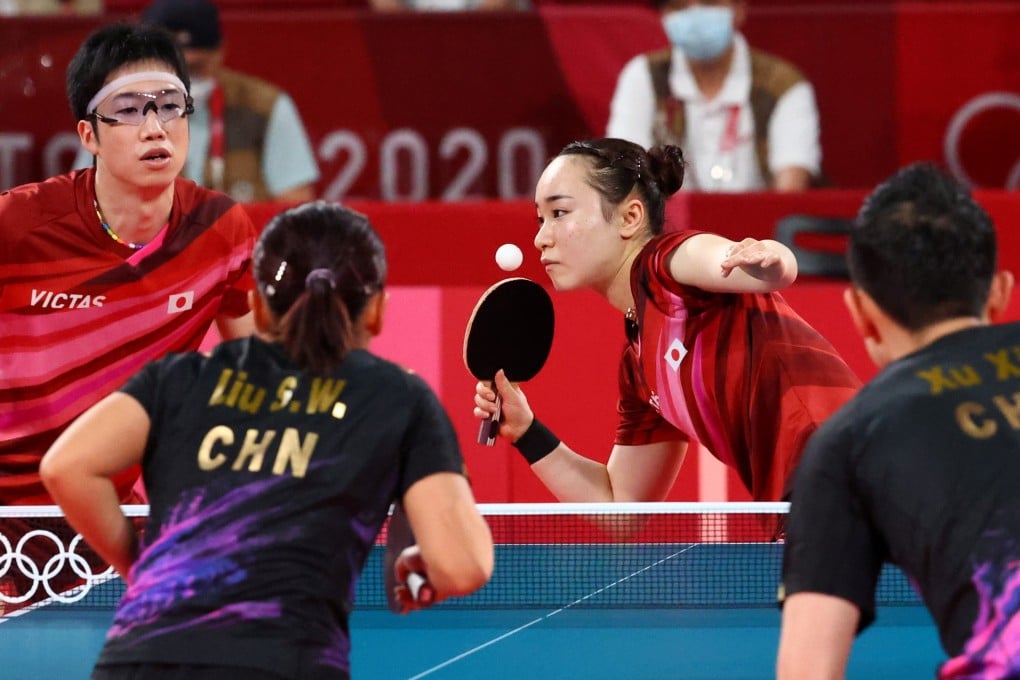Tokyo Olympics: Anti-Japanese sentiment spills over as angry Chinese netizens rail against athletes who beat their compatriots
- Irrational netizens accuse judges of bias as their favourite Chinese athletes lose, reopening some old wounds
- Others appeal for calm and reason, to focus on the spirit of the Games and not target the individuals trying their best

Chinese social media users have unleashed a new wave of hostility against Japanese athletes over the past week after China suffered two high-profile defeats against the Olympic hosts in events they have traditionally dominated.
Judges have been accused of bias and the Japanese team mocked with epithets such as “little Japan”, a derogatory label popular in east Asia after the second world war, following Japan’s upset win against China in the table tennis mixed doubles final and the artistic gymnastics men’s all-around event.
“If Japan hadn’t held the Olympics, the world might still sympathise with it. Now, not only is the Olympic spirit absent, the anti-Japanese sentiment has been awakened,” Yin Jiliang, a vlogger based in Shanghai with more than a million followers, wrote on Weibo, the Twitter-like Chinese social media platform.
Anti-Japanese sentiment in China has waxed and waned, depending on the state of bilateral ties, with the historical scars of the Japanese invasion during the second world war being summoned by Chinese netizens to explain the depth of their antipathy towards their neighbour.
But there were others who criticised the anti-Japanese netizens for being unable to accept defeat, especially when their favourite athletes lost to Japan.